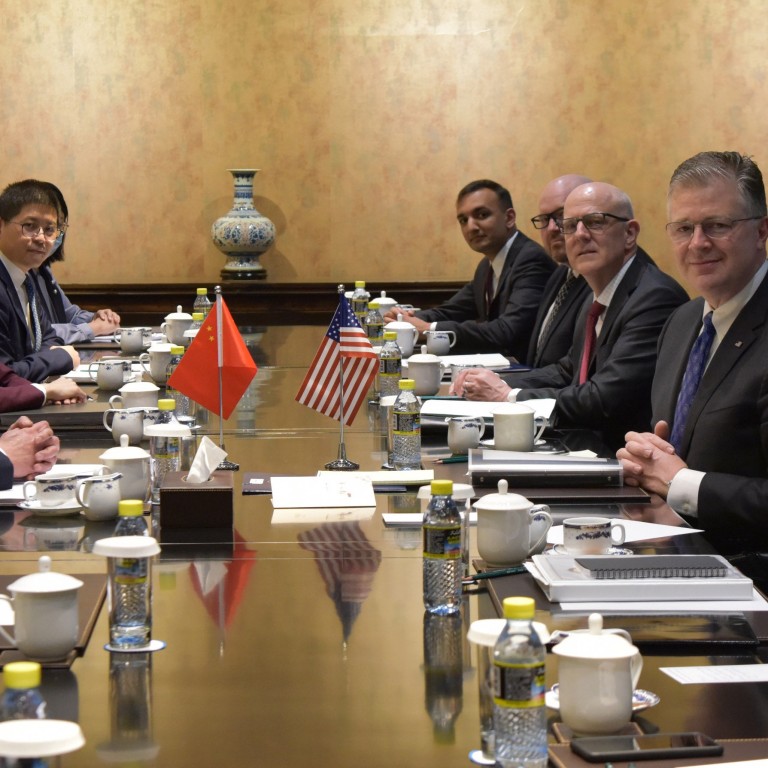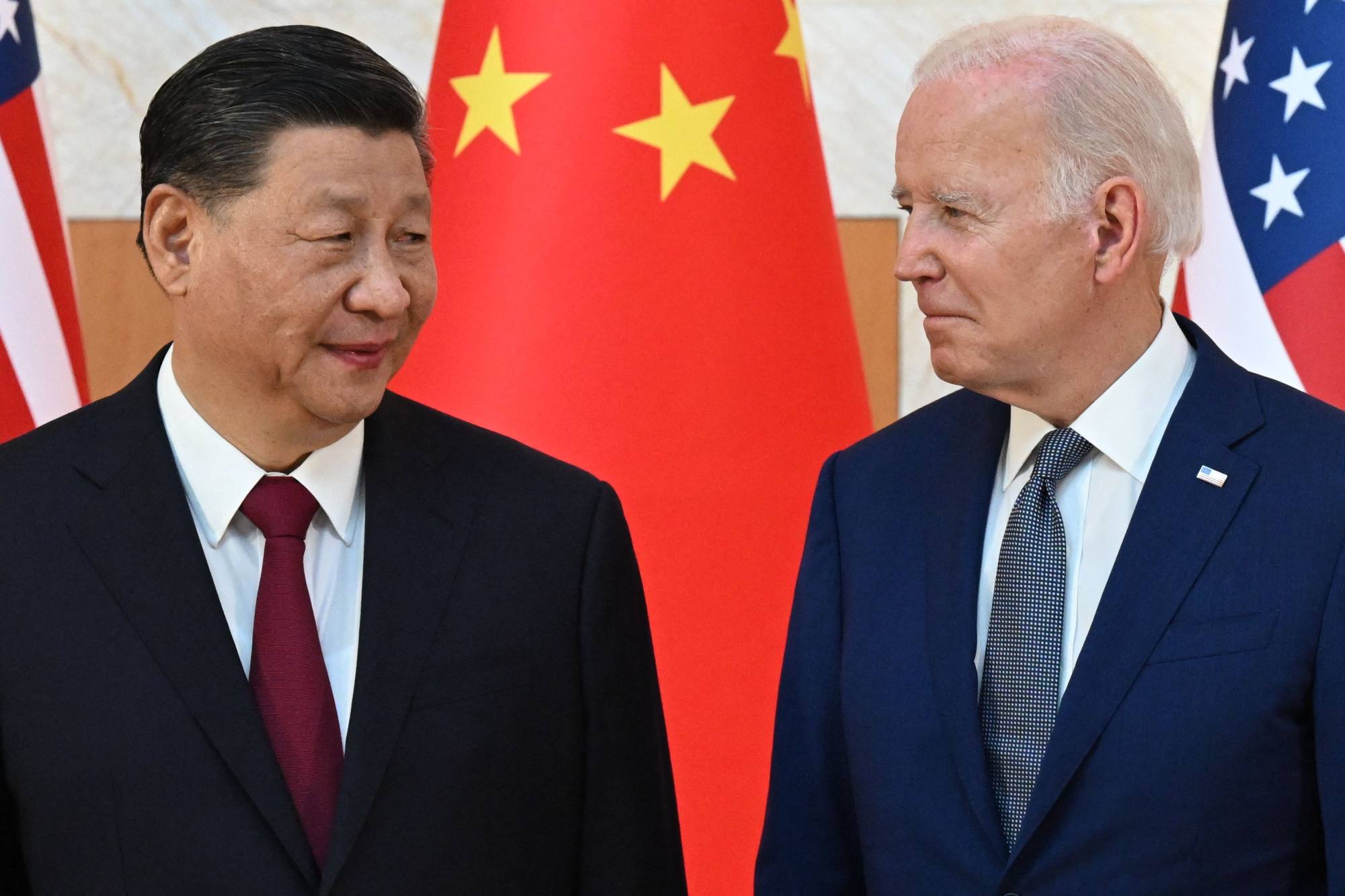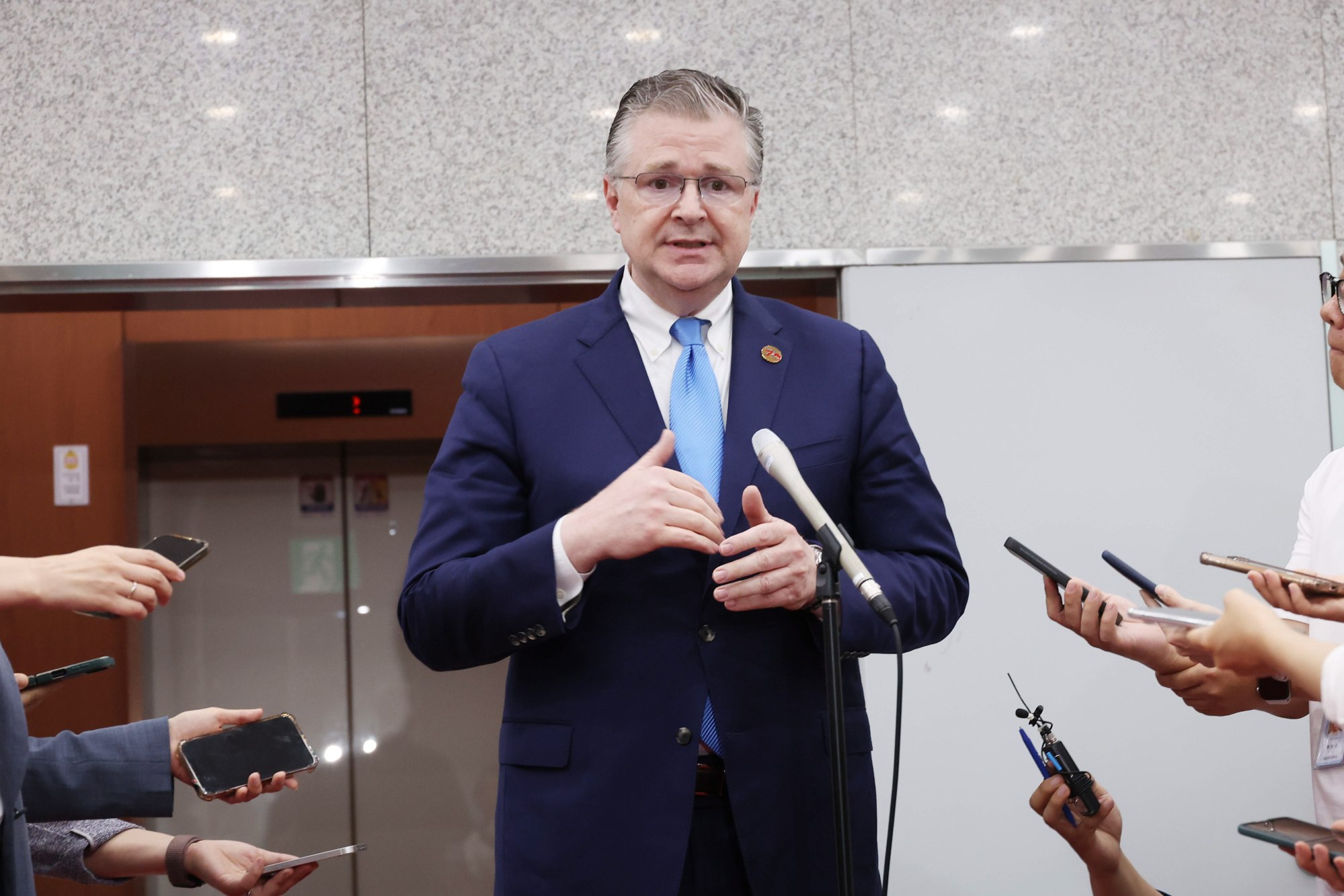
Senior US diplomats hold ‘frank and constructive’ talks with Chinese officials
- Daniel Kritenbrink and Sarah Beran are meeting Chinese officials to maintain ‘open lines of communication’, State Department says
- Beijing said the two sides agreed to continue talking, but it also protested about ‘wrong words and deeds’ concerning the South China Sea
Senior Chinese and American diplomats held “frank, in-depth and constructive” talks on Monday aimed at strengthening exchanges and managing their differences, according to the foreign ministry in Beijing.
Daniel Kritenbrink, assistant secretary of state for East Asian and Pacific affairs, and Sarah Beran, the National Security Council’s senior director for China and Taiwan affairs, met foreign vice-minister Ma Zhaoxu as part of their three-day visit that ends on Tuesday.
Both sides agreed to continue engaging in the hope of stabilising and developing relations, according to the foreign ministry. The talks also covered issues such as the Middle East, Ukraine and the Korean peninsula.
The US State Department said the American diplomats met Chinese officials as part of continuing efforts to maintain “open lines of communication and to responsibly manage competition” while seeking to “manage areas of difference as well as areas of cooperation, while reducing the risk of miscalculation”.

As part of discussions on a range of bilateral, regional and global issues, the two sides also covered China’s support for Russia’s defence industrial base and cross-strait issues, the State Department said.
The two US diplomats also met with Taiwan Affairs Office Deputy Director Qiu Kaiming and “underscored the importance of maintaining peace and stability across the Taiwan Strait and reiterated there has been no change to the US one China policy”.
“The United States emphasised its commitment to advancing its interests and values and those of its allies and partners,” the State Department said.
Japanese PM Kishida backs ‘indispensable’ global role of US, citing threat by China
Zhu Feng, executive dean of Nanjing University’s School of International Studies, said the latest talks could “help China and the US to coordinate and communicate, manage the conflict over the South China Sea and the Taiwan Strait, and control the potentially explosive deterioration of relations between the two countries”.
Tensions have been rising over long-running territorial disputes between Beijing and Manila in the South China Sea, with several run-ins between Chinese and Philippine vessels in recent months, including near Second Thomas Shoal – or Renai Jiao in Chinese – in the Spratly Islands.
Zhu said communication between Washington and Beijing was needed to “avoid miscalculation” on the South China Sea.

Beijing sees Taiwan as part of its territory, to be reunited by force if necessary. Like most countries, the US does not recognise Taiwan as a sovereign state. But Washington maintains robust unofficial ties with Taipei, opposes any attempt to take the island by force, and is committed to supplying it with weapons.
Zhu said Iran’s drone and missile attack on Israel on Saturday could also be discussed during this week’s talks, since Washington has been pressing Beijing to use its influence with Tehran – a key trade partner – to try to prevent an escalation of the situation.
“As the situation in the Middle East escalates, the US may need to shift its attention to the region,” Zhu said. “So Washington may seek to cool off on the situation in the South China Sea for now.”
US-Japan summit yields 70 deals, pledge to continue China dialogue
Josef Gregory Mahoney, a professor of politics and international relations at East China Normal University, said such visits by American officials were in line with the Biden administration’s policy of “establishing guardrails to prevent dangerous escalations”.
“It might be fair to say that this is not about guardrails for stabilising or improving relations, but about ensuring the US can advance its containment policies without sparking unwanted conflict before they’re fully deployed,” Mahoney said.
Dylan Loh Ming Hui, an associate professor in public policy and global affairs at Nanyang Technological University in Singapore, did not expect any major results from the talks.
“I think China will react cautiously and with some degree of reticence as they are suspicious of America’s moves to shore up its defence relations and coalitions in the recent past,” Loh said. “Like most people, I do not expect any substantive results.”
The two US diplomats also met with members of the US embassy community in Beijing on Monday.
Additional reporting by Mark Magnier

